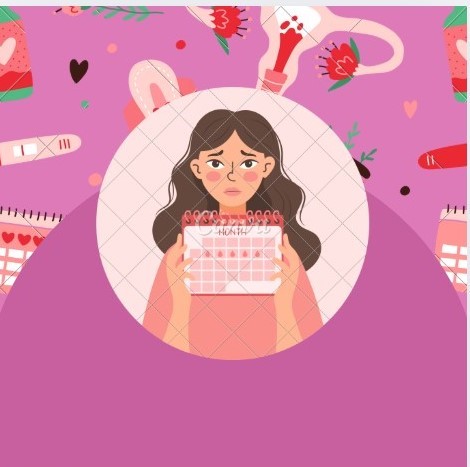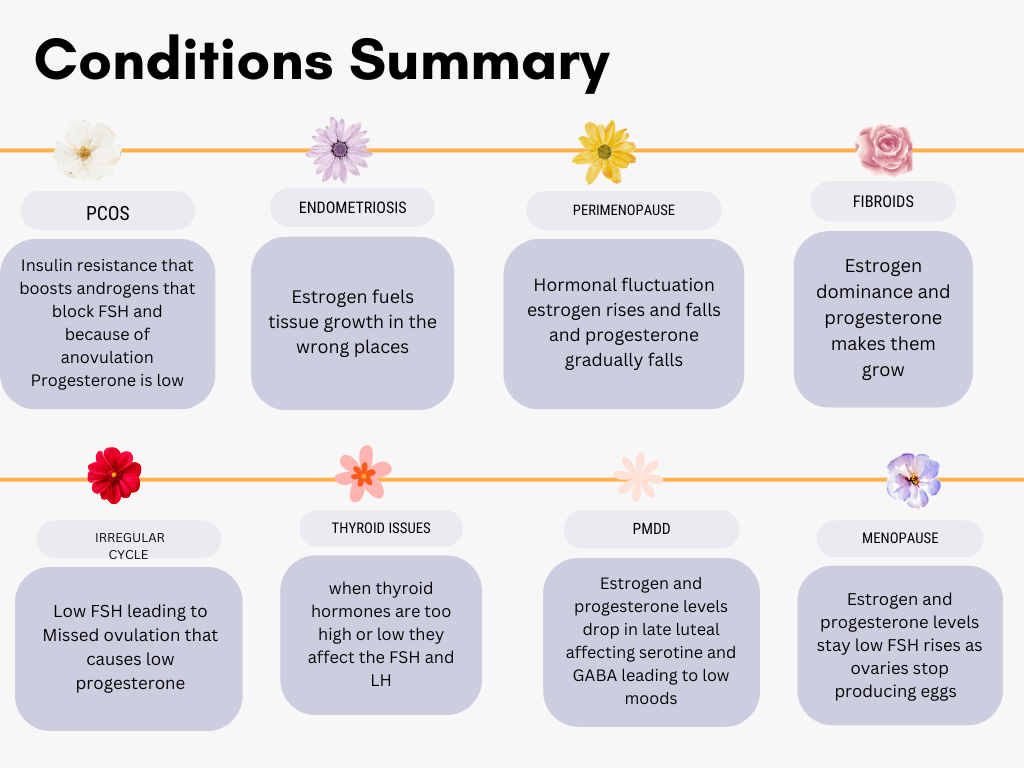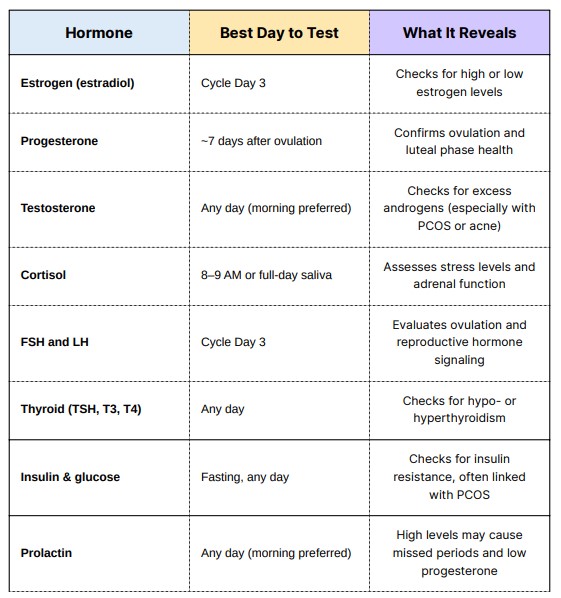
What Is Hormonal Imbalance?
So, hormonal imbalance is when your hormone levels are too high or too low during the cycle. Girlies, keep in mind each of our bodies is different, and learning your cycle patterns and listening to your body is a key thing for you to judge when things are right or wrong.
What Causes Hormonal Imbalance?
Now, another thing you may be wondering is what could have caused the hormones to be imbalanced. The causes vary. One is when you have a hormonal or uterine condition, most times these conditions are actually as a result of hormones not being balanced
Other causes are chronic stress if you are going through a stressful time or a mental health condition, lack of sleep, wrong workout regime, poor diet, underlying conditions like diabetes or autoimmune diseases also play a role, and birth control too.
see a summary with the hormones involved and for more understanding of the hormones see this post

How to Know Which Hormone Is Imbalanced
Ladies now how do you tell which hormone is imbalanced, the most accurate way is hormone testing in a medical facility. Note that this depends too on the day of the cycle. See the table below that gives you a good summary of the hormone tests.
Hormone Testing Summary

Symptoms of Hormonal Imbalance
For the symptoms, they usually don’t appear alone. It happens in clusters that form consistent patterns. Also, you can experience imbalances in more than one hormone, for example, low progesterone and high estrogen during chronic stress or a sluggish liver. See below symptoms and what it is likely the cause hormone
Hormonal Symptoms Breakdown when its likely low

Hormonal Symptoms Breakdown when its likely high

What to Do About Hormonal Imbalance
Now we know the symptoms and causes. What’s next is what to do. The best way to keep your hormones balanced is through good gut health and a healthy lifestyle that includes a good workout and diet and sleep which is 8-9 hours. You can also check with your gynecologist which birth control they can recommend for you. Supplements are also an option to support hormonal balance when used correctly, and I’ll be covering those in a separate post. As for any underlying conditions, we will explore them one by one in upcoming posts focusing which is the best way to handle them
More Resources
For a healthy lifestyle please see the links on diet and workout.

